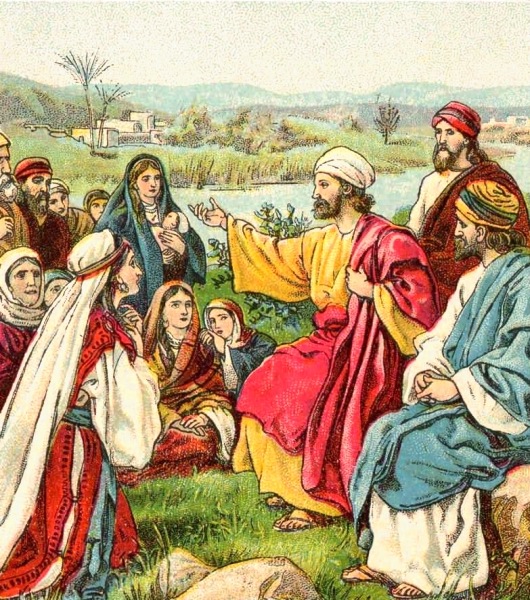
Paul Asks Jesus
The apostle felt that he was to a large extent responsible for the spiritual welfare of those converted under his labors. His desire for them was that they might increase in a knowledge of the only true God, and Jesus Christ, whom He had sent. Often in his ministry he would meet with little companies of men and women who loved Jesus, and bow with them in prayer, asking God to teach them how to maintain a living connection with Him. Often he took counsel with them as to the best methods of giving to others the light of gospel truth. And often, when separated from those for whom he had thus labored, he pleaded with God to keep them from evil and help them to be earnest, active missionaries.
One of the strongest evidences of true conversion is love to God and man. Those who accept Jesus as their Redeemer have a deep, sincere love for others of like precious faith. Thus it was with the believers at Thessalonica. "As touching brotherly love," the apostle wrote, "ye need not that I write unto you: for ye yourselves are taught of God to love one another. And indeed ye do it toward all the brethren which are in all Macedonia: but we beseech you, brethren, that ye increase more and more; and that ye study to be quiet, and to do your own business, and to work with your own hands, as we commanded you; that ye may walk honestly toward them that are without, and that ye may have lack of nothing."
"The Lord make you to increase and abound in love one toward another, and toward all men, even as we do toward you: to the end He may stablish your hearts unblamable in holiness before God, even our Father, at the coming of our Lord Jesus Christ with all His saints."
"Now we exhort you, brethren, warn them that are unruly, comfort the feeble-minded, support the weak, be patient toward all men. See that none render evil for evil unto any man; but ever follow that which is good, both among yourselves, and to all men. Rejoice evermore. Pray without ceasing. In everything give thanks: for this is the will of God in Christ Jesus concerning you."
The apostle cautioned the Thessalonians not to despise the gift of prophecy, and in the words, "Quench not the Spirit; despise not prophesyings; prove all things; hold fast that which is good," he enjoined a careful discrimination in distinguishing the false from the true. He besought them to "abstain from all appearance of evil;" and closed his letter with the prayer that God would sanctify them wholly, that in "Spirit and soul and body" they might "be preserved blameless unto the coming of our Lord Jesus Christ. Faithful is He that calleth you," he added, "who also will do it."
AA 262-263